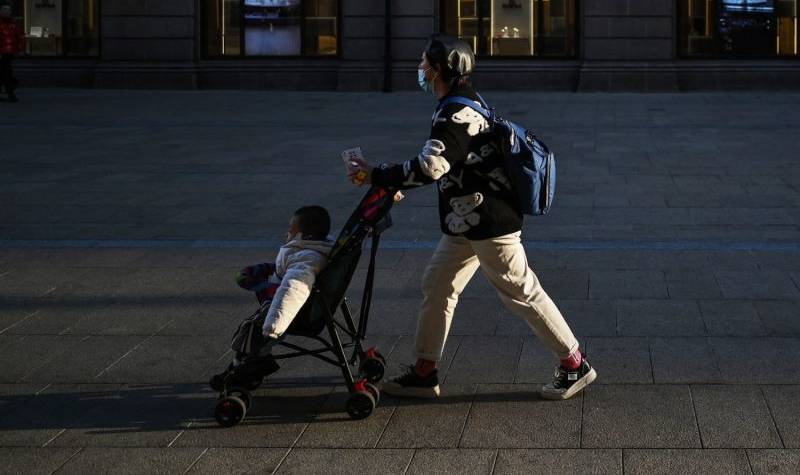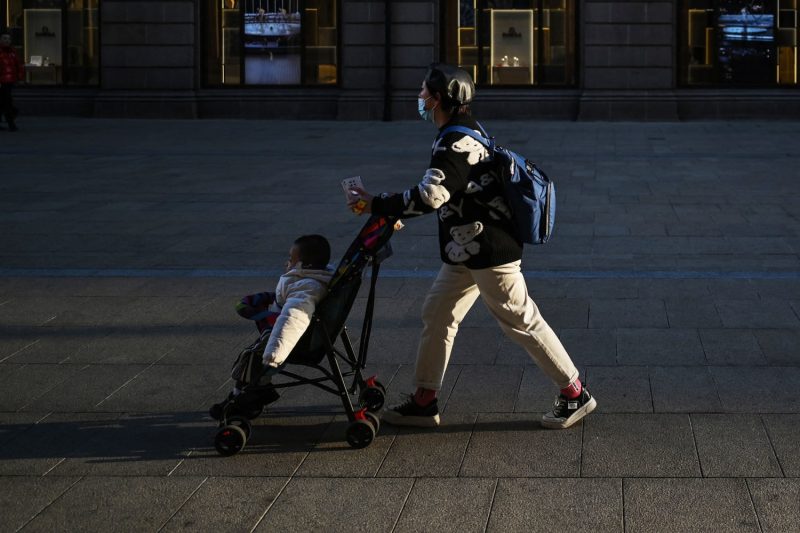

BEIJING — One Chinese baby products company announced Tuesday it is officially entering the United States, the world’s largest consumer market — regardless of the trade war.
Shanghai-based Bc Babycare expects its supply chain diversification and the U.S. market potential to more than offset the impact of ongoing U.S.-China trade tensions, according to Chi Yang, the company’s vice president of Europe and the Americas.
“Even [if] the political things are not steady … I’m very confident about our product for the moment,” he told CNBC, adding he anticipates “very fast” growth in the U.S. in coming years. That includes his bold predictions that Bc Babycare’s flagship baby carrier can become the best-seller on Amazon.com in half a year, and that U.S. sales can grow by 10-fold in a year.
The $159.99 carrier, eligible for a $40 discount, already has 4.7 stars on Amazon.com across more than 30 reviews. The device claims to reduce pressure on the parent’s body by up to 33%. A far cheaper version of the baby carrier is a top seller among travel products for pregnancy and childbirth on JD.com in China.
Bc Babycare already has the carrier stocked in its U.S. warehouses, and has a network of factories and raw materials suppliers in the Americas, Europe and Asia, Yang said. “The global supply chain is one of the things we keep on building in the past couple years.”
The Trump administration has sought to reduce U.S. reliance on China-made goods and to encourage the return of manufacturing jobs to the U.S. In a rapid escalation of tensions last month, the U.S. and China had added tariffs of more than 100% on each other’s goods. Last week, the two sides agreed to a 90-day pause for most of the new duties in order to discuss a trade deal.
Baby gear is particularly sensitive to tariffs since the majority of those sold in the U.S. are made in China, said U.S.-based Newell Brands, which owns stroller company Graco, on an April 30 earnings call. That’s according to a FactSet transcript.
The company said it raised baby gear prices by about 20% in the last few weeks, but had not incorporated the additional 125% tariffs announced in mid-April. Newell said on the call it had about three to four months of inventory in the U.S., and had paused additional orders from China.
The company did not respond to a request for comment about whether it had resumed orders from China and whether it planned more price increases.
Bc Babycare declined to share how much it planned to invest in the U.S. But Yang said the company plans to open an office in the country and hire about five to 10 locals.
The company initially plans to sell online, spend on marketing and eventually work with major retailers for offline store sales. Its partners for raw materials and research include three U.S. companies: Lyra, Dow and Eastman.
The Chinese company, which entered the baby products segment in 2014, in 2021 claimed a 700 million yuan ($97.09 million) funding round from investors including Sequoia Capital China.
Yang said the company scrutinizes the comments section on Chinese and U.S. e-commerce websites to improve its products. As a result, the U.S. version of the baby carrier is softer and larger than the Chinese version, he said.
Bc Babycare’s U.S. market ambitions reflect how large U.S. and European multinationals not only face growing competition in China, but also in their home markets.
“After experiencing substantial growth due to the premiumization of consumption in the Chinese market, multinational brands are now entering a challenging second phase where they compete fiercely for market share,” Dave Xie, retail and consumer goods partner in Shanghai at consultancy Oliver Wyman, said in a statement last week.
Oliver Wyman said in a report last month that the Chinese market has become the incubator for premium product innovations that are being exported. The authors noted, for example, that Tineco floor scrubbers have become Amazon best-sellers.
Hegseth orders Pentagon to launch comprehensive review into ‘catastrophic’ 2021 Afghanistan withdrawal
Secretary of Defense Pete Hegseth is instructing the Pentagon to launch a comprehensive re…






